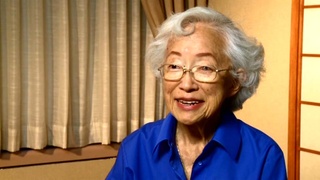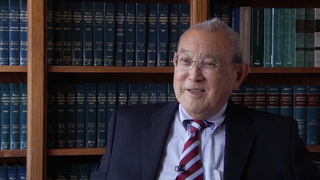Interviews
Japanese Canadians get the right to vote in 1949
Well, to begin with, that was... until, see, up until, they kept the War Measures Act and the restrictions on Japanese up going until 1949. In '49, they finally, after pressure, they had to allow Asians to become, Canadian-born Asians to become citizens. Prior to that point, the B.C. government were able to have some control over this by denying the local Japanese at that time -- even though you were, as my father was a naturalized Canadian, he was not allowed to vote. So he didn't have the vote, and as a result of local elections, not being allowed to vote in B.C. also negated the fact that he was not on the voter's list in the federal government, too. They also followed that rule that no Asian would be allowed to vote in the federal election, the government of Canada election. Well, that all went by the board, and so that, in 1949, they had to allow everyone, and even up, just before that, they had been, the Indians themselves, the aborigines had been denied the vote, and they had to give them the vote after World War II, because they couldn't justify saying that they were not Canadians, 'cause they were all born in Canada. So they had to give them the vote. It became an issue.
Date: July 25 & 26, 2006
Location: Washington, US
Interviewer: Tom Ikeda
Contributed by: Denshō: The Japanese American Legacy Project.










